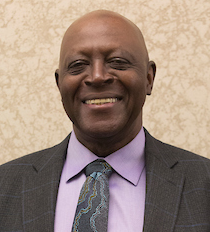2018 Lectureship Recipient

|
Professor Norman W. Loney
|
| Professor Emeritus Department of Chemical, Biological and Pharmaceutical Engineering New Jersey Institute of Technology Newark, NJ |
|
Abstract |
|
"Analytical Solutions to Models of Transport Processes—A Hemodialyzer" |
|
Traditionally, industrial type problems or applied research problems of a mathematical nature are typically, addressed using numerical methods. However, a substantial number of industrially relevant problems can be simplified enough to allow the application of appropriate analytical methods. Results from this approach, are useful in identifying variables critical to the successful operation of a given process. Extraction of relevant information from analytical results (concentration profiles) facilitates the deciphering of mechanisms driving the transport phenomena without an extensive experimental program. My efforts to solve models analytically are not limited to one type of process and are documented in peer reviewed journal articles and a textbook*. When confronted with models that are analytically intractable, numerical methods, such as finite element or method of lines are available. The redesign of hemodialyzers to incorporate the use of advanced materials to address protein catabolism appears to be a promising research direction. Current designs rely on the indirect indication of the presence of small molecules such as urea. As it turns out, urea levels in a patient are difficult to interpret, since low urea level can be caused, by hemodialysis or poor nutrition, the latter of which is associated with higher morbidity and mortality. Hemodialysis, as a process removes waste and extra chemicals and fluid from the blood. In order to get the patient’s blood into a hemodialyzer, the physician needs to make accesses (entrance and exit) into the blood vessels. This involves minor surgery to an arm or leg. There is some amount of discomfort experienced by the patient at each session, and usually the process is repeated multiple times per week. Although necessary, hemodialysis has adverse affects, on quality of life as well as serious negative effects on family members. The high need for kidney transplants are overwhelming the existing and foreseeable future supply of moderately effective performing hemodialyzers. In addition, there is no guarantee that the new host will accept a transplanted kidney. Indeed predicting the success of a transplant is still very uncertain. Therefore, it is urgent to develop more reliable, safe and effective hemodialyzers for a patient (human or animal) as an alternative to a kidney transplant. In this presentation, a model including a heterogeneous reaction scheme will be described, and compared with the non-reaction model as well as plans for this work. |
|
Abstract |
|
"Credentialing Students in Their First Separations Course Using a Problem Based Approach" |
|
It has been widely accepted that the curriculum taught in colleges and universities should relate closely to the needs of every occupation that people might subsequently follow in their working lives. This notion when viewed through the prism of an engineering discipline offers quite a challenge to instructors in light of rapid developments in modern industrial practices and technology. Meeting this challenge requires us as teachers and mentors to stay abreast of research-based findings in higher education on how people learn, while recognizing that not all new ideas will be locally adaptable. Indeed, we strive to adapt and extend the boundaries of research findings within our own sub-disciplines yet, as a community, there seems to be a substantial time delay for adopting engineering education findings. I am convinced that all Faculty set out to provide transformative educational experiences for their students while hoping that they will have contributed to each student’s development. Evidence-based teaching is implementable within the context of the ordinary classroom and is consistent with modern theories of learning and evaluation. Many instruments and resources are available as free downloads, and there are forums such as AIChE or ASEE education divisions that promote reporting of findings from these efforts while contributing towards a Faculty’s annual publication productivity. In an attempt to empower students as stakeholders in their own education, I adapted cooperative learning in the “regular” classroom, an approach that supports the development of critical thinking, creativity, leadership, collaboration and communication skills as well as providing the standard technical background expected in an engineering classroom. Having experiences, both as a Process and Contact Engineer in the Petrochemical Industry, I strive to bring the problem-solving approaches that engineers use in their daily practice back to the classroom. The notion that people learn more through activities compared to passively watching and listening has been known to both cognitive psychologists and effective teachers for many years. One approach – Credentialing, was piloted in the spring 2016 Separations course, with the aid of a process simulator. Here, we delivered new information on separation processes in a workshop format in the first part of a week, then conducted the process simulations in the second part of the week to validate results obtained through graphical or hand calculations. Each significant calculation that accompanies a new topic area (such as the McCabe-Thiele Method to determine number of theoretical stages in a distillation process) used this course delivery approach. In addition, students worked in groups on the simulations and were required to document their results in a structured report, for grading as a mini-project. In this presentation, a detailed description on Credentialing will be provided, along with some preliminary results, and future plans to extend this work beyond a onetime experience.
|
